It's Sunday afternoon at WORD Christchurch and it's a small but engaged audience that files into Tautoru/TSB Space at Tūranga to hear from Māori writers, Tīhema Baker (Raukawa te Au ki te Tonga, Ātiawa ki Whakarongotai, Ngāti Toa Rangatira), Emma Hislop (Kāi Tahu) and Airana Ngarewa (Ngāti Ruanui, Ngā Rauru, Ngāruahine) talk about the writing of short stories. Ably chairing the panel is guest programmer at large, Jordan Tricklebank of Māori Literature Blog.
Ngarewa opens the session with an acknowledgment of the passing of King Tūheitia, before Tricklebank launches into the first question: Short stories are often the first introduction readers get to Māori writers. Why?
Hislop initially says she doesn't know but makes the observation that short fiction is about posing questions rather than answering them - things are not really "wrapped up at the end". This is a point she mentions later in the session so perhaps that's part of the draw for her, personally.
Baker makes an interesting suggestion: that the oral tradition in te reo Māori means that we have always been "telling stories in a contained telling... some kaumatua probably speak novels..." but in essence Māori storytelling, traditionally at least, has always been "stories in one sitting", which is what short fiction is. It's all at once an incredibly obvious thing to point out but also something that I had never really thought about. We're only 5 minutes in and I've already had my perspective well and truly turned. But that's literary festivals for you.
Ngarewa suggests that Māori often have to wear "many hats" so don't always have the time to dedicate to a full-length work. At which Hislop chips in that "Patricia Grace had 7 children" and she pictures the prolific writer at her kitchen table churning out short story after short story.
Tricklebank notes that all the writers have worked in short and full-length fiction and wonders how you know what's a short story and what's a full-length work?
For Ngarewa it's about how much work he needs to do get to the action of a story - if it's not much that can be a short story, if more is needed that might be a novel. Hislop is intrigued by this approach and "loves hearing about other people's process". For her, short stories often grow out of overhearing something on the bus - "I won't be able to stop thinking about it". She works out her thoughts about it in the writing. But a book/novel is different. She says she's taken two years to really get to know her characters (for a novel) but with a short story it's more "broad strokes of characters". For Baker a novel might start with a concept but one that "stews away in my head" for a long period of time, so in a way he's "always writing it", as it percolates. Short stories he characterises as "a more urgent idea", something that he needs to write right now. At the moment he's focused more on novel-length works, but if an idea for a short story comes to him that he's really into, he might do more short fiction.
Tricklebank suggests to Hislop that the characters in her short story collection, Ruin & Other Stories, "feel like parts of a larger story", like chapters of a novel. Was that the plan?
Hislop says it wasn't. It took her 10 years to write 13 stories (Emily Perkins had 13 stories in her first collection and she was emulating this), and that was long enough, so she doesn't see the characters as having a life beyond those stories. Ngarewa says that he doesn't plan (which gets a laugh). In fact, he feels he's "possessed by ideas rather than the opposite". He talks about an idea that many writers before him have, and indeed Tina Makereti said similar earlier in the week, the sensation of not being the one doing the driving of the story, when you "just put your seatbelt on" and go with it. Baker also sometimes feels this way of "being in for the ride - let's see where this goes" and then, with short stories, you're out the other side pretty quickly.
Since Baker writes largely speculative fiction, Tricklebank asks if the difference between full-length and short fiction is more pronounced in that genre.
Baker says that there's more of an opportunity to do world-building in a novel because "you're in it for a longer time".
Are short stories more accessible, given they're easier to find online, and there a fewer barriers for the reader? How important, Tricklebank asks, is accessibility?
Ngarewa's next collection will be in English and Māori and he's targeting a specific audience. Most fiction in te reo Māori is for children/beginners or expert level, particularly the Kotahi rau pukapuka* titles. The Kotahi rau pukapuka translations are not that accessible for a reo learner, you have to work at them. So his collection is in simpler, more accessible language, somewhere in the middle and reflects the language his father uses. An added difficulty in writing in te reo is that some of the humour in Māori only works orally and doesn't really come across in written te reo.
Hislop admits she's "totally selfish" and doesn't really think of the audience when she's writing. Ngarewa, however, feels the weight of his community and is very intentional when he writes as he's mindful that he will have to launch that book in front of his koro and aunties. Baker admits to a certain level of selfishness too - he's writing for himself, "to process things" and he writes the book that he would love to read.
Tricklebank asks Baker, as someone who has written YA as well as adult fiction if it's the same process.
Baker points out that he started writing when he was 17 so he wanted to read about teenagers with superpowers at that age.
Tricklebank they references some Bookstagram discussion he's seen where people admitted they didn't read short stories because they aren't long enough for them to form relationships with the characters. As an answer to that, he wonders what short stories do that a novel can't?
Hislop points out that short stories are compressed and tense. You can get a lot in a short space of time (certainly this is the appeal for me of a good short story). But she also admits that novels can do that too.
Have any of the writers had a situation where two stories shared a similar conceit and therefore became too similar. Does that ever happen, Tricklebank asks?
It doesn't for Hislop because for her it's all about the complicated relationships in the story. She likes writing about terrible men (her dad thinks he's in it). People, she says, find themselves in all sorts of characters - "it's not them". "Sometimes it IS them," quips Ngarewa. Baker comes back to the earlier point about short stories versus novels and says he doesn't think length "is an indication of a good story". Which prompts Ngarewa into some "length" related humorous asides, and if you're getting the impression that Ngarewa is the "class clown" of this session that is entirely a correct one, but he's also got good things to say about short stories which he describes as like "a good rollercoaster without the long wait" or "like being an aunty or uncle rather than a parent - all the fun stuff without all the labour".
Trickleback's next question is when it comes to writing in te reo and English do you adapt your writing style to the language?
This is a definite yes from Ngarewa with the structure of the language being a factor. There's lots of subject deletion and passive sentence structures in Māori, perhaps a reflection of a certain humility and tendency to underplay your own skills - a certain lack of self-belief. He also made a point of using common words, using those as poupou and building from there. When it came to editing his bilingual book he had one English language editor and one te reo Māori editor and there was quite a bit of difference between the two. For example the humour in the reo version is much more explicit and dirty, as this is the cultural norm - he points out that you can find lots of this sort of explicit humour in moteatea for example. In English, he says "my editor had some different feelings about it". Sounds like English language readers might have to settle for more subtle innuendo. Baker admits that his reo is not at the level that he could write confidently in Māori, but one day he hopes to. When he wrote a story in te reo Māori it was one he wrote in English first and then translated with the approach of "what is the core idea of the sentence" and then expressing that in whakaaro Māori. He describes it as "intensive".
What, Tricklebank wants to know, is the biggest challenge in their current work?
For Hislop it's getting sustained periods of time away from her child. She has2 weeks away in Dunedin coming up "its extraordinary to me how much work I can get done when I'm way from my family". She's also being mentored by Whaea Patricia Grace (she of the 7 children and kitchen table short stories). Baker has similar struggles, "space and time and funding" and being a dad means his brain "just runs out of steam". Ngarewa says he finds writing really easy... because he can take his works back if he needs to which isn't so easy when he's speaking. At this point he references an earlier WORD Christchurch appearance during which he said something that the libraries blog (that's us!) said was "super off-colour".
In the Q and A segment we here about how the writers approach drafting and editing. Hislop likes to leave something for a couple of weeks or give it to another writer, then she'll see new things about it. Baker says it's very iterative, chipping away at it - "the work is never done but at some point it's good enough". Ngarewa recounts a story of pallbearers at a tangi finding that the casket was unusually heavy and taking that as a tohu (a sign) that the person wasn't ready to go yet. Stories can also not be ready to go yet. Or sometimes you're just in your own way.
We also get some short story recommendations. Hislop plumps for anything by Pip Adam but particularly "The kiss" which is based on Chekov. "I'll never be as good as Pip but I'll never stop trying". Ngarewa suggests "Pounamu, pounamu" the Witi Ihimaera collection that has just been translated into te reo. Tricklebank chips in with Patrica Grace's "Electric City" which he says is the best representation of her work, which he describes as "precise" and "economical".
An interesting and entertaining session and a good one to end my festival on.
*Kotahi rau pukapuka is an initiative to translate 100 books into te reo Māori. Titles so far available include Rōmeo rāua ko Hurieta, Te Koroua me te Moana and Hare Pota me te whatu manapou among others.
More WORD Christchurch
- Our WORD Christchurch 2024 coverage - Library staff report back from WORD sessions
- WORD Christchurch website
- Follow WORD Christchurch on Instagram, Facebook and X FKA Twitter


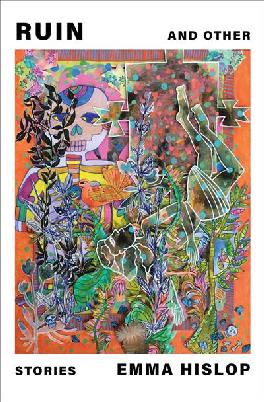
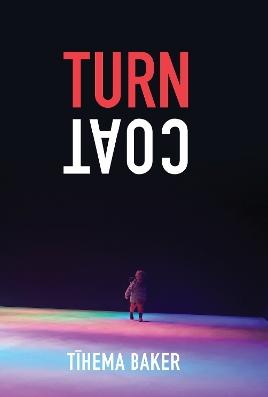
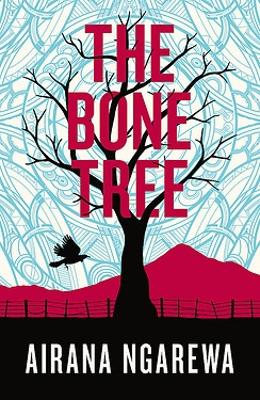
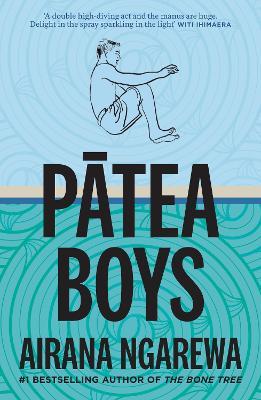
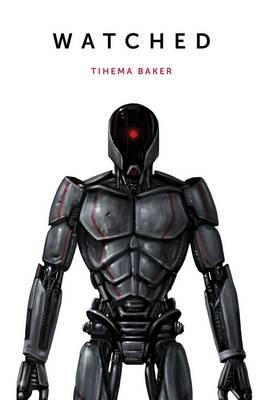
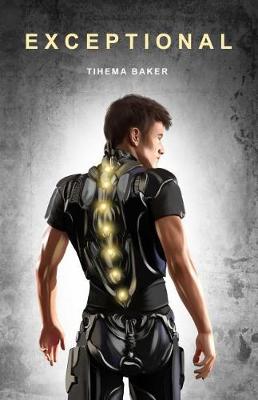



Add a comment to: Short story kōrero: WORD Christchurch 2024